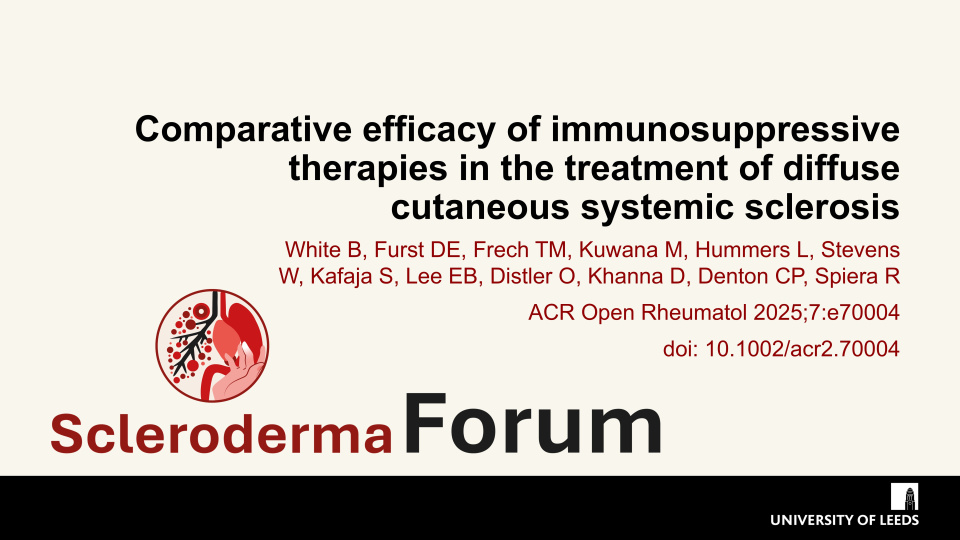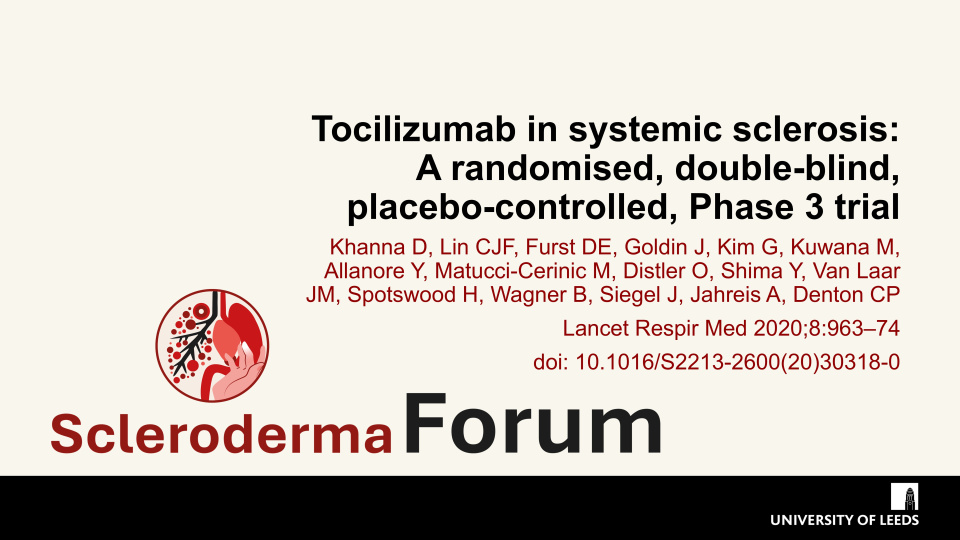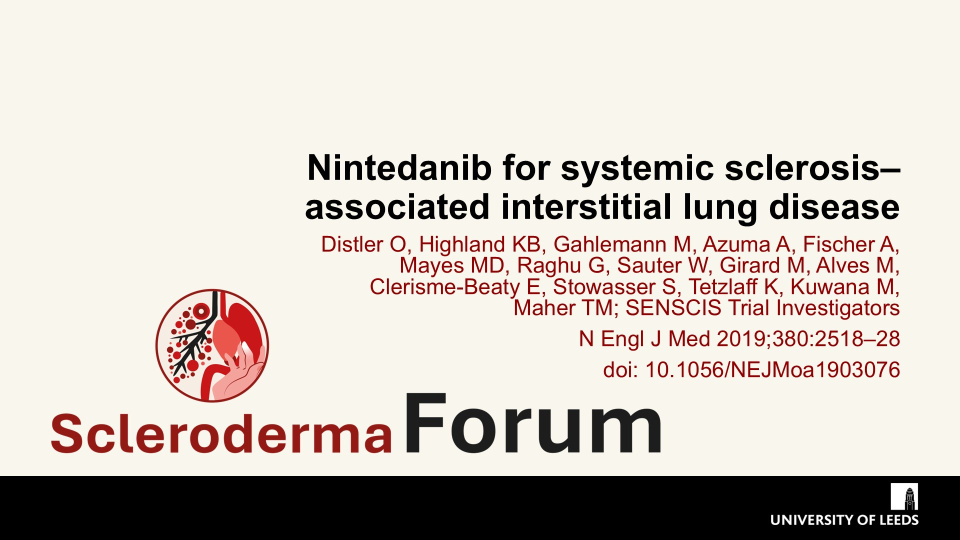Publications
Find coverage of the latest original articles on scleroderma, focusing on those with data on therapeutic interventions and those that have clinical impact.
Sponsored by Boehringer Ingelheim.
Comparative efficacy of immunosuppressive therapies in the treatment of diffuse cutaneous systemic sclerosis
ACR Open Rheumatol 2025;7:e70004 DOI: 10.1002/acr2.70004.
White et al. report a post hoc analysis of the RESOLVE-1 trial comparing immunosuppressive therapies in diffuse cutaneous systemic sclerosis (dcSSc), finding numerically greater improvement in modified Rodnan skin score and stabilisation of lung function with mycophenolate mofetil (MMF), particularly in patients with early-stage disease and anti–topoisomerase 1 antibodies. These findings strongly support MMF as a preferred background therapy in this population.
Keywords:
Tocilizumab in systemic sclerosis: A randomised, double-blind, placebo-controlled, Phase 3 trial
Lancet Respir Med 2020;8:963–74 DOI: 10.1016/S2213-2600(20)30318-0.
Khanna et al. evaluated tocilizumab in patients with early diffuse cutaneous systemic sclerosis in the focuSSced trial. The primary endpoint of improved skin fibrosis was not met, but a key secondary outcome showed that tocilizumab significantly preserved lung function compared with placebo.
Keywords:
Nintedanib for systemic sclerosis–associated interstitial lung disease
N Engl J Med 2019;380:2518–28 doi: 10.1056/NEJMoa1903076
Distler et al. reported that the annual rate of decline in FVC through Week 52 was lower with nintedanib than with placebo among patients with ILD associated with SSc. No clinical benefit of nintedanib was observed for other manifestations of SSc. The safety profile of nintedanib was similar to that observed in patients with idiopathic pulmonary fibrosis.




